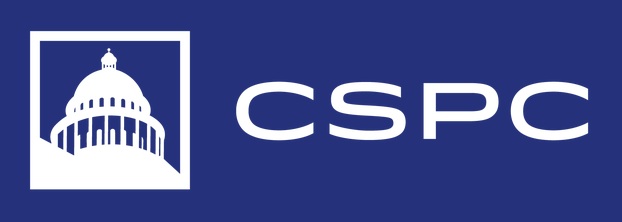2019-2020 Fellows Review
CSPC launched the Presidential Fellows program 50 years ago in response to the domestic political turmoil that plagued the late 1960s and early 1970s. The goal was to bridge the divide between young people and government leaders. In pursuit of that mission, we set out to build an elite program for college students to develop their leadership skills and instill in them a commitment to civil dialogue and public service. Though the structure and scope of the program has evolved over time, that core mission has never changed. As we find ourselves in a similarly challenging moment for this country and the world, we are reminded of the importance of investing in the next generation as we seek to build a better future.
We are immensely proud of the 2019-2020 Presidential Fellows. Beyond their outstanding research, this group has displayed resilience and determination in overcoming challenges stemming from the coronavirus pandemic. They forged ahead despite upheaval in their academic careers, personal lives, and professional pursuits. Through both our in-person policy conference held in the fall and our Zoom-enabled conference in the spring, this cohort learned about leadership in the national security field from former Secretary of the U.S. Air Force, Dr. Heather Wilson and the COO of SpaceX, Gwynne Shotwell; discussed U.S. foreign policy with Congressman Michael Turner; and explored the opportunities and challenges of leading a presidential administration with former White House Chief of Staff to President George W. Bush, Joshua Bolten, and former Deputy Secretary of Labor in the Obama Administration, Chris Lu. The lessons offered in these conversations and others helped shape their understanding of the U.S. Congress and presidency as institutions and informed their research on these subjects.
Each year we have the pleasure of publishing the best of the Fellows’ work in the Fellows Review. This year, 24 research papers were chosen for publication. Of those, 5 were selected for special recognition for extraordinary research:
The David M. Abshire Award for Most Outstanding Paper by an International Fellow was awarded to Uma Kalkar of The University of Toronto for her examination of the growing digital divide in the United States (“Digital Fault Lines: An Examination of Internet Inequality in the United States”).
The Donald B. Marron Award for the Best Historical Analysis was presented to Ross Snyder from Georgetown University. In his research, Ross explored the links between civil rights and foreign policy during the Truman administration (“The Politics of Equality: Harry Truman and the Intersection of Race and Foreign Affairs in The American Presidency”).
Dean LaGattuta from the United States Military Academy was recognized with the Robert A. Kilmarx Award for the Best Military, Intelligence, or National Security Strategic Analysis for his research on how domestic and foreign crises have impacted the evolution of the National Security Council (“Adapting to the Moment: How Crises Shape the NSC”).
George Washington University student Zach Hollander won the James R. Moffett Award for the Most Original Paper on the Modern Presidency or Congress for his analysis of federal housing assistance for low-income renters (“Policy Retrenchment and Low-Income Renters: The Failure of Federal Housing Policy”).
Maya Ungar of the University of Arkansas took home the Richard H. Solomon Award for the Most Original Paper on Foreign Policy or Diplomacy for her evaluation of the factors that propel the U.S. government to distribute foreign aid in cases of extreme conflict (“Bosnia, Rwanda, and the Global Fragility Act: United States Foreign Aid and Genocide Prevention”).
We are proud to recognize these Fellows for their outstanding work, and we congratulate all of the members of the 2019-2020 class on their successful completion of the Presidential Fellows program.
We are deeply grateful to the Fellowship sponsors for their generous support of the program. Without their help, we could not provide such a substantive and meaningful experience for our Fellows. We are also thankful to the participating universities for their guidance and support of their students.
We are indebted to Aida Olivas, Wyatt Newsome, Emily Stone, Nick Schroeder, and Danielle Anjeh for their editorial work on the 2019-2020 Fellows Review under the guidance of Erica Ngoenha, Director of the Presidential Fellows Program.
The pages that follow feature expert analysis, innovative ideas, and illuminating explorations of American history. Please enjoy reading the thought-provoking research that our 2019-2020 Presidential Fellows have produced.
Glenn C. Nye III
President & CEO
Center for the Study of the Presidency & Congress

